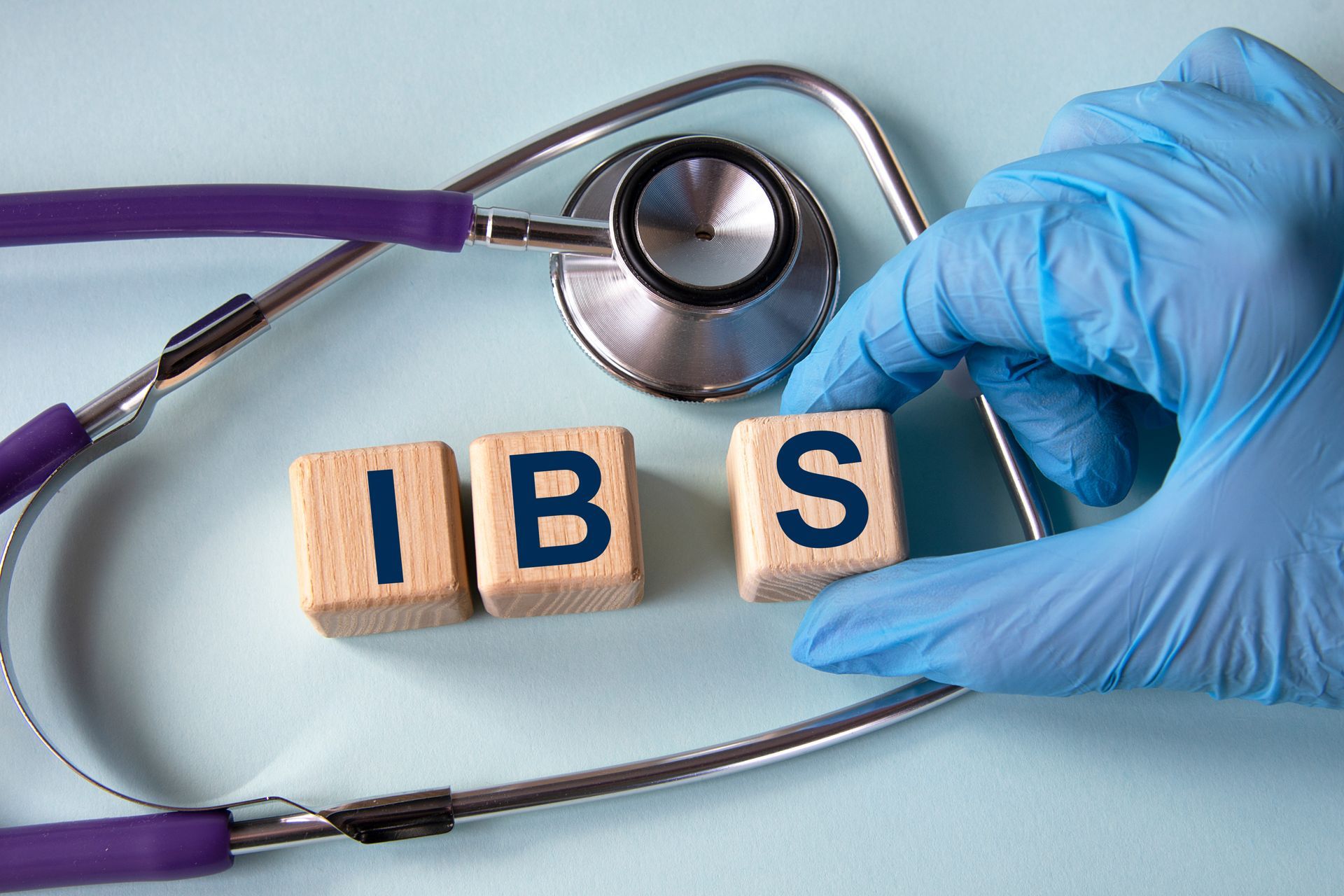Ibs IN NORTHWEST FLORIDA
A common gastrointestinal disorder that affects many people is IBS, or irritable bowel syndrome. This condition impacts the large intestine and has a variety of symptoms that can become chronic. If you suffer from IBS, you need to consult a gastroenterologist to manage it. Severe symptoms are rare, and IBS does not increase your risk of developing cancer or other gut health issues, but it can negatively impact your quality of life and comfort. Here is everything you need to know about irritable bowel syndrome.
HAVE QUESTIONS ABOUT IRRITABLE BOWEL SYNDROME?
-
What Causes Irritable Bowel Syndrome?
While the definitive cause of IBS is unknown, there are several factors that contribute to the development of this condition. A severe infection that is caused by a virus or bacteria, or a bacterial overgrowth can spur the development of IBS. Muscle contractions within the walls of the intestines can cause gas, diarrhea, and eventually the symptoms that define irritable bowel syndrome. The fungi and bacteria that make up your gut’s microbe, when altered have been shown to cause IBS as well.
-
What are the Symptoms of Irritable Bowel Syndrome?
There are several symptoms of IBS, however any specific symptoms persist for a significant period of time, those can be strong signs of irritable bowel syndrome. Bloating, cramping, and other abdominal pain that occurs during a bowel movement is a common sign of IBS. If your BM pattern or schedule changes, or the appearance of your stool is altered, you should consult a gastroenterologist.
-
When Should You See a Doctor for IBS?
Your bowel habits should dictate when you should see a doctor, specifically a gastroenterologist. If you’ve experienced weight loss, rectal bleeding, unexpected vomiting, nocturnal diarrhea, trouble swallowing, iron deficiency, or persistent abdominal pain that can’t be relieved from a bowel movement, you need to see a physician.
-
What are the Risk Factors for Developing Irritable Bowel Disease?
There are a variety of risk factors that can lead to the development of IBS. This condition tends to impact those under the age of 50. Heredity can also play a role if there is a family history of Irritable bowel syndrome. Women tend to experience IBS more often than men as well.
-
What Happens After a Colonoscopy?
It typically takes about an hour after a colonoscopy to recover from the sedative. You will need someone to drive you home after your recovery. It will take the rest of the day for the effects to wear off, so it is important not to drive, operate machinery, or make critical decisions for at least a day.
Depending on the different activities done during the colonoscopy, you may have some dietary restrictions (i.e., if a polyp was removed, etc.).
-
What Activities Can Trigger IBS?
If you’ve experienced the common symptoms of IBS, this condition can be triggered and amplified by diet and stress. Food allergies or intolerances can worsen your symptoms. Dairy, wheat, citrus, carbonation, and other specific foods or drinks can all trigger the symptoms of IBS. Stressful experiences can also aggravate a chronic case of IBS.
-
How Can Irritable Bowel Syndrome be treated?
The treatment for IBS is focused on the relief of symptoms. Oftentimes, changes to diet and lifestyle can alleviate the discomfort that IBS creates. High fiber diets, exercise, a healthy sleep schedule, and hydration can often alleviate irritable bowel syndrome symptoms. There are also several medications that range from SSRI antidepressants, anti-diarrheal medications, laxatives, pain medications, and fiber supplements can be effective in relieving the symptoms of IBS.
READY TO SCHEDULE AN APPOINTMENT?
IRRITABLE BOWEL SYNDROME BLOGS

CONTACT
850-763-5409
ADDRESSES
4 LOCATIONS
204 E 19th Street, B, Panama City
12216 Panama City Beach Pkwy, D, Panama City Beach
4295 3rd Ave, Marianna
101 Good Morning St., 109B, Port St. Joe
Subscribe to our newsletter:
subscribe to our newsletter
We will get back to you as soon as possible.
Please try again later.


